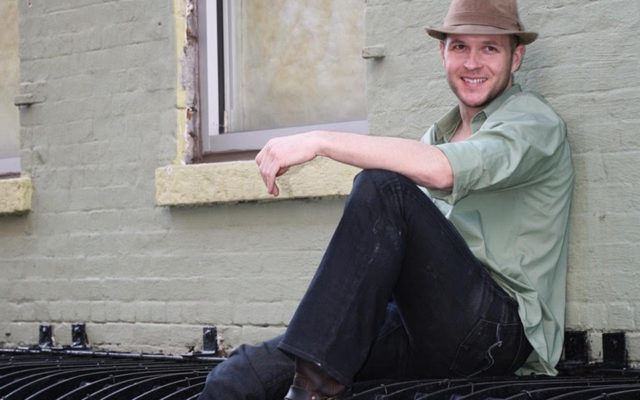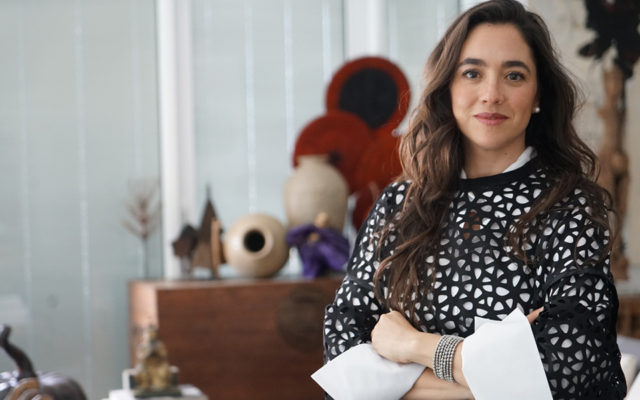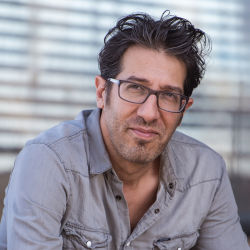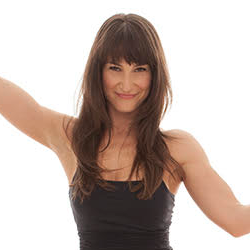I love to laugh. I also love to make other people laugh, whether it’s from something I’ve said or more likely from my own loud, body-bending chuckle. Most people know this about me.
What most people don’t know, but could probably assume, is that while laughing is one of my favorite pastimes, there are times when it’s hard for me to even crack a smile. In those moments, I’m dealing with the same things that everyone deals with in life, the same ups and downs that can really knock me off balance and keep me there.
To help combat those moments, I spend one night a week in the basement of a kindergarten with a group of people who also like to laugh a lot. We’re a group of improvisers.
Like most things in life tend to happen, improv came to me exactly when I needed it to. It came at a point when I was craving some much-needed differentiation. It came to me at a point when living in the Middle East felt more “normal”, and less of a defining feature. It came to me when I lost my job at a failed startup venture that, even though it wasn’t mine, felt like it was.
I needed a breath of fresh air, something to bring the balance back.
I needed to laugh.
So there I was, sitting in a sparsely decorated kid’s playroom, in a circle with new faces all around me that looked friendly enough. Never had I gone out on a limb like this. Never had I said ‘yes’ to something this incredibly uncomfortable. But I would soon discover that the seemingly unsteady limb I’d so brazenly stepped out onto was a surprisingly sturdy one, with the strength to not only teach me lessons about a new craft, but about myself.
For anyone who’s a stranger to improv (improvisational theatre), I highly recommend it. It’s one of the truest forms of performance imaginable (and I’m a musical and dance enthusiast through and through). Unscripted and unplanned, this type of theatre draws purely from the creativity, teamwork, physicality, and humor of a group of people all working to create random scenes out of thin air.
Seeing improv – especially good improv – in person is an unforgettable experience, for the good and for the bad. Because, as you can imagine, when things are left up to on-the-spot thinking/reacting/acting, things can get weird.
That’s where the rules of improv come into play.
There are a set of guidelines that help give structure to a seemingly unstructured performance and more importantly help prepare improvisers to go into any scene. Like what? Like sitting down for yet another awkward family dinner, getting stuck halfway up a mountain on a ski lift that just broke down or meeting your a blind date only to realize they’re your second cousin.
Starting improv with little knowledge of what it actually was, I assumed it would just be a break from the norm, a chance to get out a few laughs. And trust me, it is. But it’s so much more than that. Each and every one of the guidelines I’ve been exposed to and have learnt has taught me more about what I’m good at and what I’m not than I could have thought possible. Whether it’s in class our out there in real life.
For example, listening. It’s true for most people in conversations; they already know what they’re going to say before the other person even finishes. I am horrible at this, and it’s something that improv highlighted and underlined in red for me. I would go into a scene having my own idea of where and who I was and needed to say, without regard for what the other person needed to and was already saying. The result was that I was confused, my partner was confused and the audience was, too.
Luckily, things I got better, and so did my scenes. I learned and practiced more guidelines: make connections, find patterns, disregard your own embarrassment or what people might think, and move on.
But I saved the best for last. It’s the one guiding principle that I try to take with me wherever I go.

Yes, and.
A cornerstone of improv comedy, ‘yes, and’ is the idea that you take whatever information, idea, or emotion you’ve been handed and go with it. No questions asked. No hesitations.
If someone says it’s cold out, you wouldn’t say, “What a beautiful July day!” You’d probably start shivering and respond with something like, “Haven’t seen a blizzard like this one come through in years.” If someone starts laughing uncontrollably, you wouldn’t say, “Dude, we’re at funeral.” You’d likely laugh along and say, “Is that your brother? Is he really naked?”
‘Yes, and’ requires you to let go of whatever you want to happen, and instead, take what’s in front of you and make the most of it. And better yet, actually make it interesting. Make it funny.
It translates to life, too.
If you’re stuck at an airport, you accept the 5-hour delay and you take advantage of Duty Free or read the book you’ve wanted to finish the last year. If there’s a problem at work, you don’t freak out and say it’s impossible. You nod without hesitation and trust that your creative brain can figure out a way to make it work.
Unlike what I used to think, and what you may be thinking now, saying ‘yes’, in improv and in life, doesn’t mean rolling over or even giving up on your own agenda. Saying ‘yes’ puts you in the driving seat and position of power. It gives you the upper hand, and the mindset to say, “I got this.” It allows you to use your creativity, and find ways to bridge whatever comes your way with whatever it is you want to accomplish.
The concept of saying ‘yes’ has opened my eyes to who I am as a person, and how I handle things. My outlook on challenges has slowly shifted from feelings of frustration and anger, to those of enlightenment and empowerment. It’s opened me up to the idea that if you’re willing to accept any circumstance, you’re able to react in a way that reflects who you really are.
Of course, just like in improv, it’s not all sunshine and rainbows and funny scenes. There’s always a flop to be had.
That’s why there’s always a new scene, a new day and a new opportunity to say ‘yes’.
—
If you want to check this out for yourself, there are always the classic, cream-of-the-crop examples like Who’s Line is it Anyway or ASSSSCAT. Then, there’s the in-person live performances put on by your local improv troupe. My strong advice: go check it out.















Chaya Gross
Just joined an improv group here in Montreal and it has been very inspiring as well. Definitely a reflection of the culture and our connection or lack thereof to it. Thanks for sharing.
shira
what a surprisingly insightful piece. thank you. i’ll be trying to remember this first one – listening, letting go of what i planned on saying and try to engage with what IS being said…. ?? especially in difficult conversations….